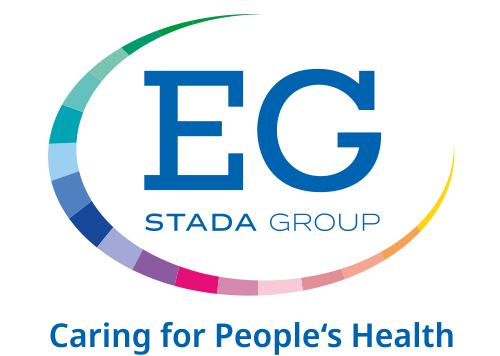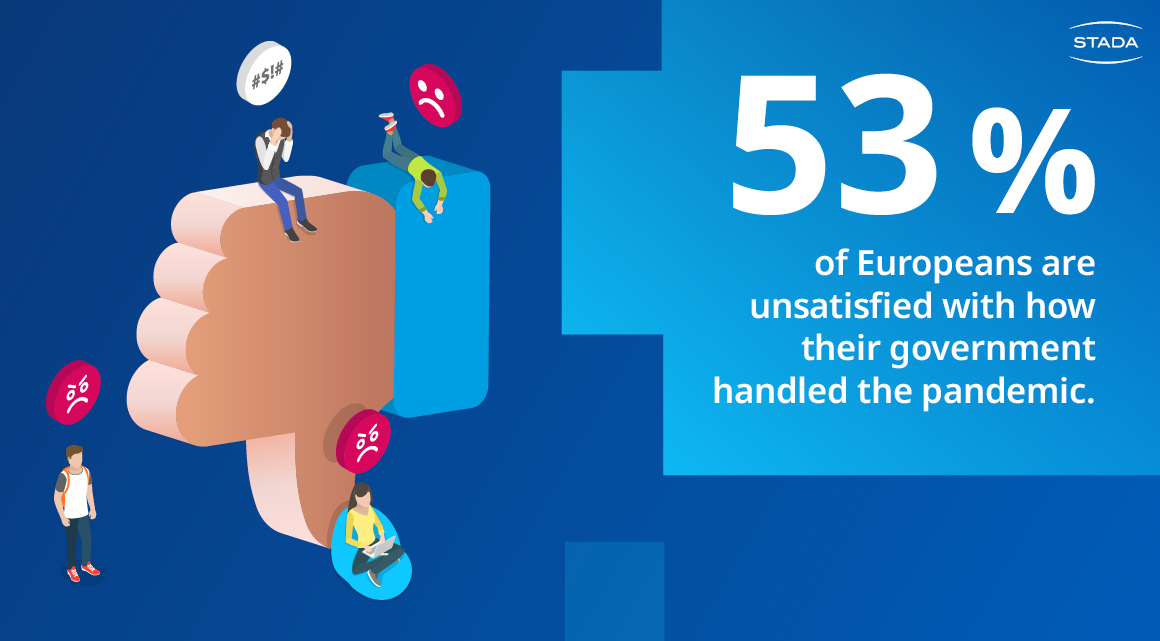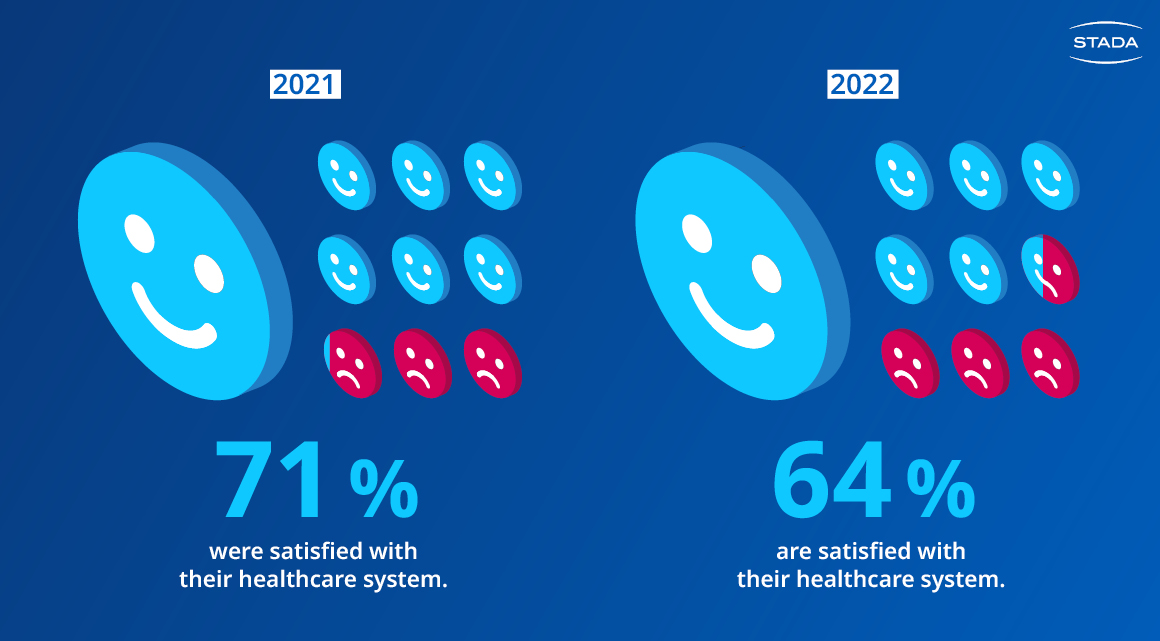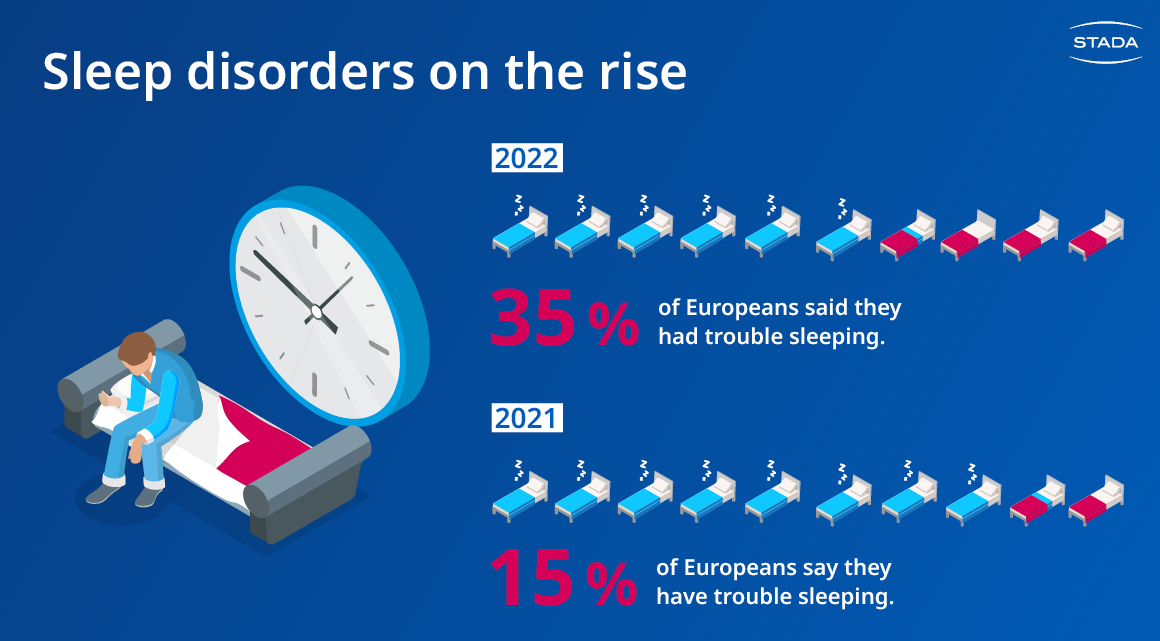STADA Health Report 2022
Europe, early summer 2021: Covid vaccination programmes across Europe were in full flow, bringing the prospect of returning to life more like we knew it before the pandemic. But had the virus changed the way we lived irreversibly? By asking detailed questions of 30,000 people across 15 countries, the STADA Health Report 2021 brought to light the immediate short-term effects of the pandemic on the lives of Europeans: how it affected their mental and overall health, old habits that were abandoned and those adopted in their stead, but also Europe’s resilience and readiness to step up – by abiding by the rules. One year later, STADA checked in with Europeans to learn what longer-term effects the pandemic has left on Europe’s health landscape: How is their mental health holding up? What is worrying them? Are they paying more attention to their health? What is keeping Europeans awake at night? And who are they turning to for support? All the answers can be found in the STADA Health Report 2022.

Mental Health, Stress
The early effects of the pandemic on the European population’s mental constitution already revealed themselves in last year’s Health Report: Self-reported stress and anxiety levels were on the rise. The burnout rate however had remained largely consistent with earlier surveys. While the pandemic has certainly accelerated and added to the number of cases of mental health issues, not least due to difficulties in accessing appropriate care, accrediting this phenomenon solely to Covid would mean falling short of the mark. Surely, its long-term consequences have yet to reveal themselves, but the fact of the matter remains: Mental health problems are a widespread disease – and have been for a while.
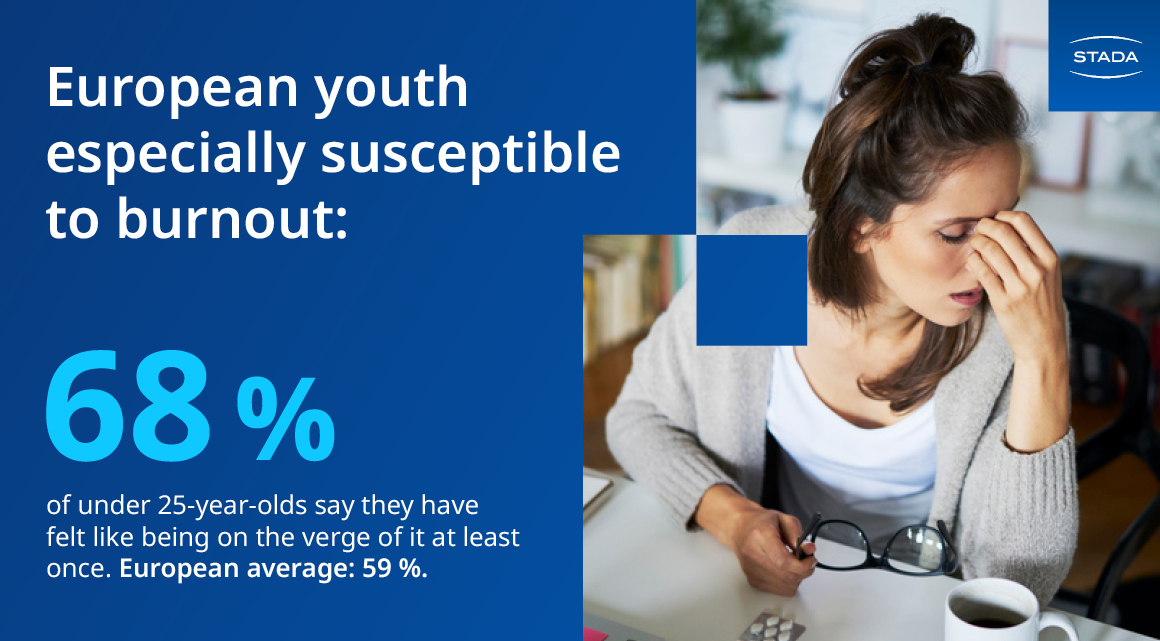
Living under a shadow:
Is Europe on the brink of a mental health crisis
- Self-assessed stress-levels surge from 25 to 37 percent
- People under 25 are struggling more than other age groups
- Number of Europeans with experience of burnout increases to 59 percent
- More than 1 in 3 Europeans have trouble sleeping through the night
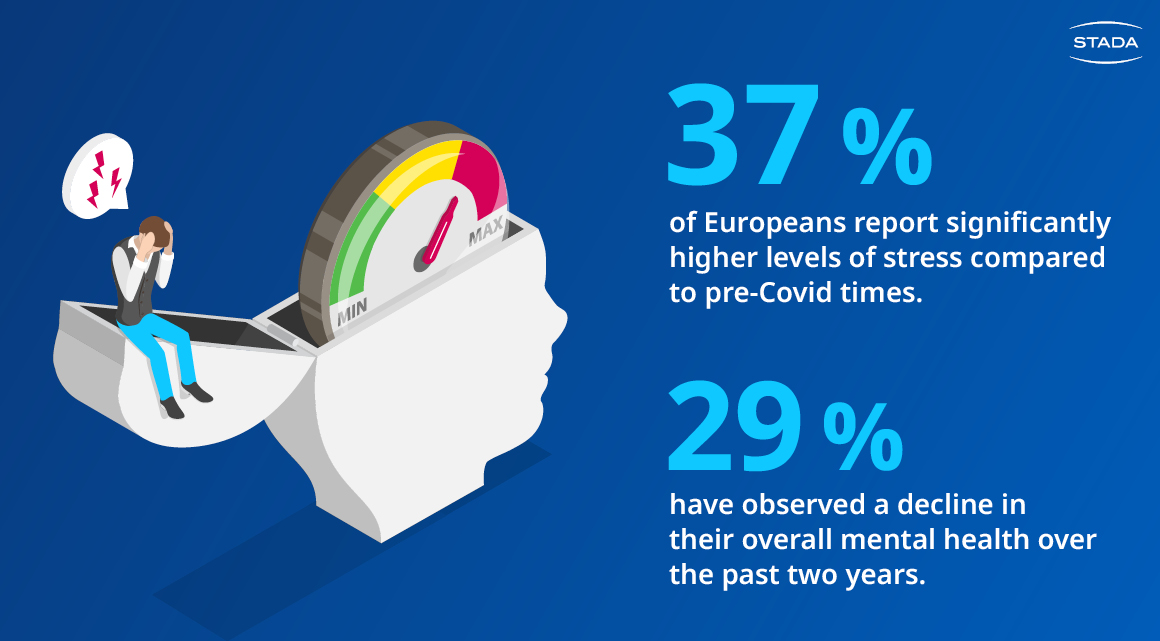
The mental health of many Europeans has undeniably suffered during the Corona pandemic. Last year, one in four said that their stress level had increased significantly since the outbreak of the virus – a trend that has continued over the past 12 months. It would nonetheless be an error to ascribe these developments solely to the pandemic, as the mental health of the European population was not all that stellar to begin with: Even before Covid hit, the self-reported rate of those having suffered from burnout, often feeling like they are on the verge of it or at least being familiar with the feeling has always exceeded 50 percent. Today, the European average has reached an all-time high of almost 60 percent. In many regards, Covid seems to have merely exacerbated mental health problems which have loomed over (and, pun intended, inside of) our heads for years.
Trust and the Pharmacy of the Future
In times of fake news and misinformation coming from everywhere at any time of the day, trustworthy and reliable sources have become more important than ever. So while a degree of caution and skepticism may be sensible, it turns out that a fair number of Europeans have a hard time trusting even medical experts’ opinions when it comes to matters of health. But in whom do they place their trust when it comes to health-related information? And what does this mean in the greater scheme of things – namely the standing of conventional medicine, and satisfaction with European healthcare systems in general? Are we approaching a tipping point in terms of trust in our medical systems?

Covid-blues or systemic time bomb? European trust in conventional healthcare is on the decline
- Satisfaction with healthcare systems plunges from 71 to 64 percent
- Slight decrease in trust in conventional medicine
- General practitioners deemed most trustworthy medical professionals
- Pharmacy of the future must combine individual care with comforts of digitisation

The 2021 edition of the STADA Health Report clearly illustrated that the European population were willing to give grace in a time of torment; over the past year however, their satisfaction has taken quite the tumble: Today, only 64 percent are content with the healthcare system in their country – an overall decline by seven percentage points compared to 2021. In part, this can be attributed to low scores in Kazakhstan (25 percent) and Romania (31 percent) who were not involved in the 2021 survey – still, long-standing participants Serbia (31 percent) and Poland (36 percent) are also towards the bottom of the satisfaction scale. In fact, Serbia has recorded the most significant drop in approval: 49 percent of its citizens gave the Serbian healthcare system the thumbs up in 2021, which today remains true for 31 percent. Other notable mentions include the UK (16 percent drop), Austria (13 percent fall), France, Portugal and the Czech Republic (9 percent decline each). On the other end of the spectrum, contentment is at its highest in Belgium (86 percent), Switzerland (84 percent) and the Netherlands (83 percent). Interestingly, the Netherlands is also the only country where satisfaction with the national healthcare system has increased over the last year.
Study Design
Originally conceptualised as a German study to investigate the country’s “Health Literacy”, the STADA Health Report has since evolved to become one of the most comprehensive and extensive health studies on the continent. Following its international debut in 2018, it has investigated, covered and chronicled the impact of major debates and events on the European population’s health and minds, their fears, hopes and opinions. Not least but perhaps most notably since the outbreak of the Covid pandemic in early 2020, the Health Report has been a reliable mood barometer at the very pulse of the European population, making it both the tangible extension of and testament to STADA’s purpose of Caring for People’s Health as a Trusted Partner.
Sample and methodology 2022
This year’s cross-national survey was carried out by InSites Consulting via an online questionnaire from mid-March until mid-April 2022 in the following 15 countries: Austria, Belgium, the Czech Republic, France, Germany, Italy, Kazakhstan, the Netherlands, Poland, Portugal, Romania, Serbia, Spain, Switzerland and the United Kingdom. Kazakhstan and Romania participated for the first time this year. With around 2,000 respondents in each country, the panel included a total of 29,637 people between the ages of 18 and 99. As always, the results are representative of the characteristics of age, gender and region.
The questionnaire comprised more than 30 questions from seven different categories:
